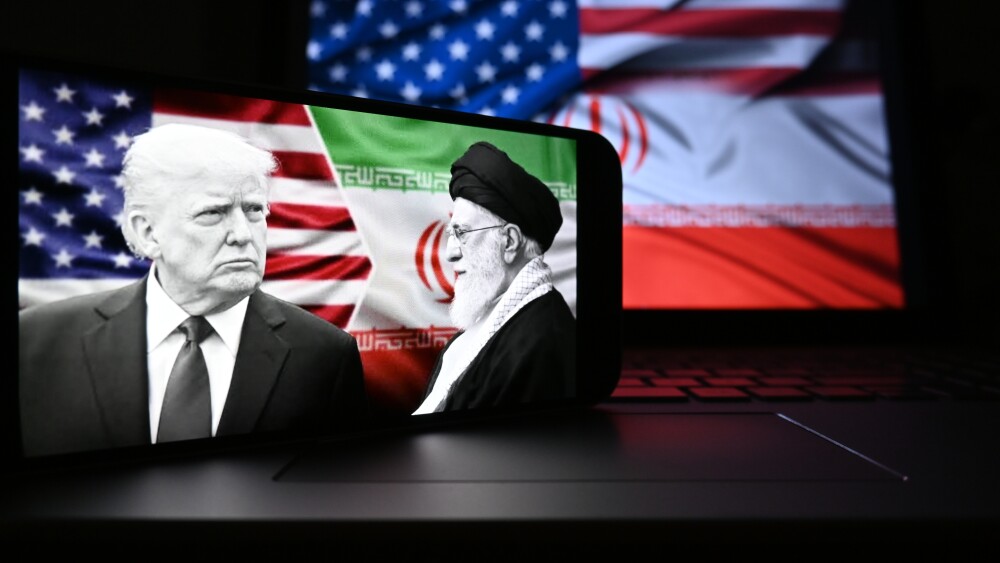The Council on American-Islamic Relations (CAIR) is having a tough time coming to grips with the Trump administration’s decision to help Israel destroy the Islamic Republic of Iran’s nuclear program. The outrage appeared in statements issued by CAIR over the past few weeks. Before Israel attacked Iran on June 13, 2025, and Trump piled on with a bombing attack of his own that severely damaged Iran’s nuclear facilities nine days later, the organization spoke in hopeful but restrained terms about the president’s willingness to negotiate with Iran. But once Trump attacked Iran, CAIR doubled down on conspiracy-laden rhetoric that portrayed the U.S. as a puppet or pawn of Israeli Prime Minister Benjamin Netanyahu. Numerous local chapters of the organization followed suit.
CAIR’s goal is not American safety or wellbeing, but a fractured civil society in the U.S.
The organization, which condemned the U.S. attack on Iran hours after it happened, has remained silent about a fatwa calling for the assassination of Trump and Netanyahu issued by the Islamic Republic of Iran on June 29, 2025. The Daily Mail reported that “Grand Ayatollah Naser Makarem Shirazi said that both Trump and Israeli prime minister Benjamin Netanyahu were guilty of ‘mobareb’, the term in Islamic law for waging war against God.” (CAIR, which appears to have refocused its messaging away from Iran towards Gaza, has not responded to repeated inquiries from Focus on Western Islamism.)
KEEP
— CAIR National (@CAIRNational) June 30, 2025
TALKING
ABOUT
GAZA
All in all, the critique of Trump’s policy resembled the messaging offered by the National Iranian-American Council (NIAC), and Shia imams in Dearborn, Michigan, suggesting—but not proving—that a coordinated, but largely ineffective, messaging campaign had been adopted behind the scenes by Islamist organizations in the U.S.
Hopeful Praise for Trump, Contempt for Israel
CAIR’s hopeful approach to the Trump administration was evident in a press release issued on May 23, 2025, in which the organization praised the president for his willingness to negotiate with Iran and accord it the right to a peaceful nuclear program. At the same time, however, CAIR blamed Israel for convincing Trump to demand that Iran abandon efforts to enrich uranium. “President Trump deserves credit for pursuing a nuclear deal with the Iranian government, but it appears he is now falling into a trap set by Netanyahu and pro-Israel warmongers who want the negotiations to fail so that they can drag the United States into an unnecessary war with Iran,” CAIR declared, adding that the “Israeli government [should] account for its rogue, unmonitored nuclear weapons program,” the statement said.
CAIR did not acknowledge that, while Arab countries have largely tolerated a nuclear-armed Israel for decades, they have made it clear that if Iran gets the bomb, they will insist on getting nukes themselves, bringing an end to nuclear nonproliferation in the Middle East.
Egyptian military analyst General [Ret.] Samir Farag made this perfectly clear in an April 20, 2024 interview with Russia Today TV translated by the Middle East Media Research Institute (MEMRI). Farag declared “Who was the first one to have [nuclear weapons]? Israel. But if Iran will also have them, that’s it. Egypt, Saudi Arabia, and the rest of the Arab countries would want them too. And, the other Arab countries would also want [nuclear weapons].”
By failing to acknowledge this reality, remaining silent about Iran’s ongoing efforts to destabilize the Middle East with its proxies in Lebanon and Yemen, and condemning Israel for defending itself against Hamas, CAIR demonstrated that it was more interested in disguising a pro-Islamist narrative in the mantle of a message that might appeal to anti-Israel types that form part of Trump’s political base.
This, of course, is to be expected from an organization led by Nihad Awad, who once met with Hamas leaders in a hotel room in Philadelphia to discuss how to legitimize their organization’s anti-Israel agenda in American society. In late November, 2023 Awad expressed joy over the Hamas attack on Israel while speaking at the American Muslims for Palestine annual convention.
“The people of Gaza only decided to break the siege, the walls of the concentration camp, on October 7th,” he told the audience. “And yes, I was happy to see people breaking the siege,” he said, adding, “The people of Gaza have the right to self-defense, have the right to defend themselves, and yes, Israel as an occupying power does not have that right to self-defense.”
Gloves Off
CAIR took its gloves off with the Trump administration on June 22, 2025, when a U.S. attack on Iran severely weakened the country’s nuclear program and laid bare the inability of the regime—which had been destabilizing the Middle East for decades—to defend its territory.
Awad, the man who met with Hamas leaders in 2003, condemned “President Trump’s illegal and unjustified act of war against Iran, which prioritizes the wishes of Benjamin Netanyahu over the American people and threatens to drag our nation into a wider war in the region.”
Predictably, Awad said the attack was “carried out under pressure from the out-of-control Israeli government” and “took place despite the longstanding conclusion by our nation’s intelligence community that Iran was not seeking nuclear weapons.”
Bassim Elkarra, executive director of CAIR’s advocacy wing, CAIR Action, took a similar approach, declaring the attack was an abuse of “executive authority” and a betrayal of American values in a June 22 interview with a local TV station in Northern California.
“President Trump ran on a platform of peace bringing peace to the Middle East and he has done nothing close to that unfortunately. And now we’re on the verge of dragging the United States for another war for Israel and this is very dangerous for our country and for the Middle East,” he said.
The Reality
CAIR’s efforts to downplay Iran’s nuclear intentions contradicted a May 2025 report from the International Atomic Energy Agency that stated that Iran had removed equipment installed in its nuclear facilities making it impossible to effectively monitor Iran’s nuclear program for the previous four years, and that “significantly increased production and accumulation of highly enriched uranium by Iran, the only non-nuclear-weapon State to produce such nuclear material, is of serious concern.”
In sum, the IAEA was confirming for its audience what former Iranian Nuclear Chief Ali-Akbar Salehi said on Iranian television in February 2024: “We have [crossed] all the scientific and technological nuclear thresholds.” It also ignored Iranian academic Mohammad Gharav, who declared in August 2024 that, “We have become a nuclear country, and we can obtain nuclear weapons with the push of a button.” These are not the statements of a country that “is not seeking nuclear weapons” as asserted by CAIR’s leader Nihad Awad.
Nevertheless, CAIR staffers promote the dishonest line of their leaders in local media markets throughout the United States. For example, Hussam Ayloush, CEO of CAIR’s chapter in California, mimicked Awad’s statement exactly, declaring: “This attack, carried out under pressure from the out-of-control Israeli government, took place despite the longstanding conclusion by our nation’s intelligence community that Iran was not seeking nuclear weapons.”
Interestingly enough, CAIR’s national office did not give President Trump credit when he ordered Israel to refrain from bombing Iran after a ceasefire was declared.
The conclusion is obvious: Like a lot of Islamist institutions and their allies in the U.S., CAIR used a distorted narrative about events in the Middle East to incite—not inform—its American supporters and allies.
If CAIR is interested in making amends to the American people, it can start by forcefully condemning the fatwa calling for U.S. President Trump’s death. Until it does, U.S. citizens have every reason to conclude that CAIR’s goal is not American safety or wellbeing, but a fractured civil society in the U.S.




